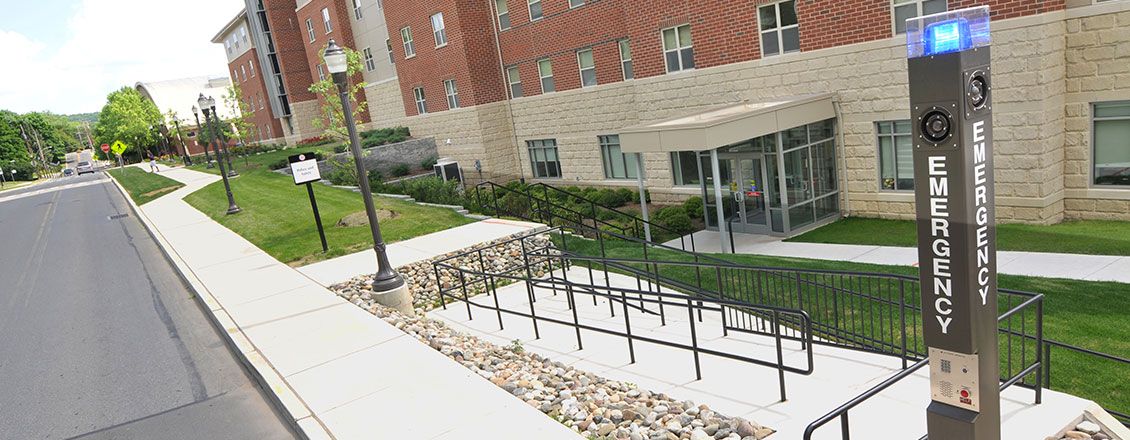
Emergency Actions
This quick reference guide is designed to provide you with suggested actions and responses to various situations based on best practices established by reputable university and non-university organizations and entities. This information is only to be used as a guide. Situational judgment is always necessary.
Top 3 Emergency Tips
- Common sense: good judgment and logic lead to good decisions
- Stay calm: panic only leads to confusion and inactivity
- Call 911; do not hesitate
Hostile Intruder
If you see or are informed of an active shooter situation via text message or other communication:
- Evacuate if safe to do so
- If not safe to evacuate, move immediately to a secure room; close/lock/barricade the door
- Turn off lights, stay away from windows and remain calm and quiet
- Do not open doors or windows to see "what's going on"
- Do not open door to anyone except police
- Only contact police if you have valuable information
- Seek further information via web, telephone, text message, etc.
- Use common sense
Evacuation
If you are informed of an evacuation via text message or other communication:
- Evacuate the building at the nearest exit; notify and help others as you leave
- Take all personal belongings with you (wallet, keys, ID's, purses, etc.)
- Do not use the elevator
- Do not reenter the building
- If you do not have your own transportation to leave campus, follow the directions of emergency responders
Shelter in Place
If you are informed of a shelter in place situation via text message or other communication:
- Go to the nearest building, move to the center of the building away from doors and windows
- Close windows and turn off air circulating equipment if possible
- Do not leave secure area until instructed to do so by the police
- Wait for further instructions by means of University text message or the web
Fires
- Activate the nearest fire pull alarm
- Evacuate the building at the nearest exit; notify and help others on your way out if you are able and willing
- Close doors as you leave
- Do not use the elevator
- Do not reenter the building
Suspicious person
- Note specific characteristics of the person
- Notify police
- Do not attempt to confront, stop or apprehend the person
Bomb threat
Most bomb threats are received by phone. Bomb threats are serious until proven otherwise. Act quickly, but remain calm and obtain information. If you receive a telephoned bomb threat: record the exact time the threat was received, exact words of the person making the threat, time the caller hung up, and phone number where the call was received.
Follow the checklist below for bomb threat received by phone:
- Remain calm. Keep the caller on the line for as long as possible. do not hang up, even if the caller does.
- Listen carefully. Be polite and show interest.
- Try to keep the caller talking to learn more information.
- If possible, write a note to a colleague to call the authorities or as soon as the caller hangs up, immediately notify them yourself.
- If your phone has a display, copy the number and/or letters on the window display.
- Immediately upon termination of call, do not hang up, but from a different phone, contact authorities with information and await instructions.
Suspicious object
- Do not touch or disturb the object
- Evacuate the area and notify others on your way out
- Call 911
Sick or injured person
- Determine the basic nature of the sickness or injury
- Notify police immediately
- Stay with the patient until police arrive
Contact Us
Contact Information
- Campus Address
- Hemlock Suites Smith Street, Ground Floor
- Phone:
- (570) 422-3064
- Fax:
- (570) 422-3677 (Fax)
- Title of Department Leader
- Interim Chief of Police & Director of Campus Safety
- Name
- Ralph Elick
- E:
- relick@esu.edu



